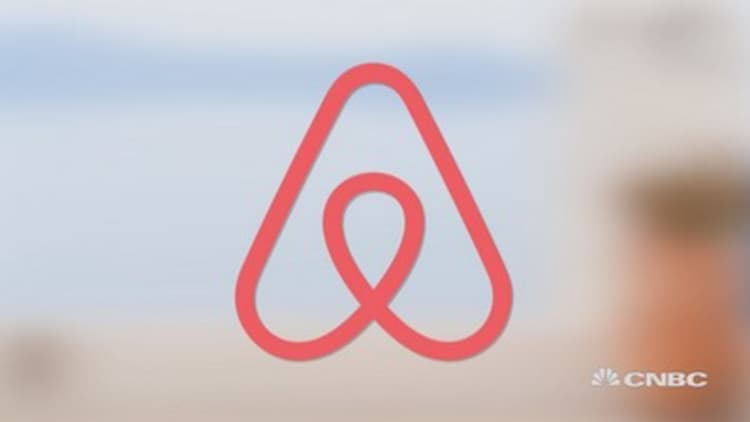
After seven years of helping travelers find rental properties in 190 countries around the world, Airbnb is now undergoing its own bout of wanderlust, aimed at its fastest growing market: China.
"In just the past year alone, outbound travel from Chinese guests through Airbnb has grown 700 percent ," the company said in an August blog post.
Like fellow Silicon Valley "unicorn" – a term for a billion-dollar tech startup -- Uber, Airbnb is soliciting the help of local investors in China to navigate the market and to assist in the search for a chief executive in the country.
Airbnb confirmed last month it is partnering with China Broadband Capital (CBC) and Sequoia China, both of which reportedly took part in a $1.5 billion fundraising round in June that put Airbnb's valuation at an estimated $25.5 billion. China's Hillhouse Capital Group was also among the lead investors taking part in that round, suggesting the new valuation hinges a great deal on Airbnb's success in the world's second largest economy.
The bold expansion overseas will only enhance the so-called "network" effect that tech investors suggest is driving the lofty valuations. Julie Meyer, Chairman and CEO of Ariadne Capital tells CNBC the reason Airbnb is surpassing the market cap of public hotel chains such as InterContinental Hotels is due to "its network, its reach, the peer to peer platform that is driving the economics of the sector."
Mark Hawtin, who manages the GAM Star Technology fund agrees on the lucrative power effect of the network, but he tells CNBC there are alternative ways to get exposure.
"The network effect can be invested in, really still quite cheaply, through the quoted market through companies like Google and Facebook," he said.
"So I don't think you need to take the risk of being invested in private companies."
Even for risk-hungry investors looking to get in before an anticipated initial public offering, Ariadne's Meyer says there is no guarantee the current valuation will hold. "Whether it goes public at that valuation, whether it will stay at that valuation is a completely different issue."
One key risk to the downside is that Airbnb becomes a victim of its own success, with traditional hotel and travel firms adapting to become more competitive. Referring to investors that took part in the June fundraising, Meyer tells CNBC: "They are completely discounting that the empire strikes back."
Follow us on Twitter: @CNBCWorld





